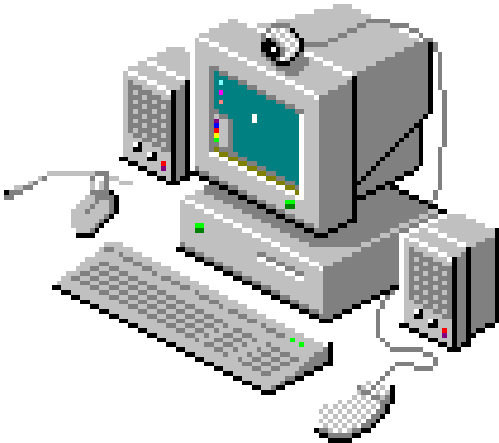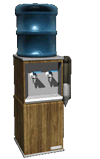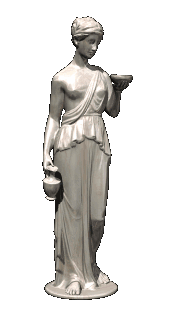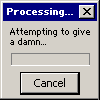ONE PERSON BOOK CLUB

Book: Six Memos for the New Millenium (Italio Cavlino)
Chapter 1: Lightness
I’m compelled by his decision to start with this one, perhaps the most ephemeral of any of the topics listed. The thoughts were rambling, stacked upon each other haphazardly but concurrently united by a theme of lift and—of course—lightness. I found the words almost impossible to move past, the concept resonating so concretely in my chest; yet at other points, I drifted away from the page, finding lightness in my own mind, laughing at the connections drawn to Ovid and leaping over tombstones. I don’t know what to make of this essay. The first ten pages have been pursued many times, never finished until today, and now with the concept of lightness in my mind… I still don’t know if I agree.
The concept of lightness, in my experience, is often used as a way to leap over problems instead of tackle them. Of course, heaviness can pin us to the ground, suffocate us with horror and responsibility, but lightness can distract. Lightness can let us lift ourselves over tombstones, rejecting the structure of poetry itself, or it can let us keep death and decay far away, never growing to face it, letting it scare us later on.
As I was reading this essay today, sitting on the bank of the Mississippi river, there was a man, about fifty feet away from me smoking a cigarette. I wanted to go and ask him for one desperately. It would have quenched my desire instantaneously. A birthday gift to myself—prove that I’m an addict and get a treat out of it too. But I did not. Instead of lifting my feet off the ground, following the intoxicating smell infusing itself into the air from tens of feet away, I kept myself heavy and reminded myself of lows that I did not want to recreate. If I had followed lightness in that moment I would have sunk. Instead I rose above the light.
Chapter 2: Quickness
This is a fitting chapter for me in many ways. As a writer and a reader I struggle with brevity. I desire sentences so complex they cause a third readthrough. The value of intensely crafted prose intoxicates me and yet I demand from the fiction I read that it move as swiftly as it can. Boredom begins instantly at the first branch into the irrelevant, at the first indication that a passage is meandering. This is why Cavlino appeals to me so much. He calls it out himself, that most of his work is short fiction or barely strung together narratives that he can weave in and out of as he pleases.
Today I received feedback on a mid-term evaluation of my college writing. It’s a frivolous exercise my school implements to ensure it gets grants and can endlessly display statistics about its students. Perhaps I say that because it's true, perhaps because I detested every part of the process and I am floored by my feedback. I was told “your writing style is a bit inflated” and that I should actively try to simplify my approach to argumentation. My gut instinct is to reject this, insist that the reader is wrong—or chalk it up to the fact that I am primarily a philosopher, and that I have been learning to write by studying extraordinarily dense philosophical papers. My heart knows this is wrong.
I write complex and “inflated” prose to attempt to justify each portion of my thinking, leave nothing to chance, build a barricade of rhetoric so thick that no one dares tear it down. I cause my readers to trudge through a slog of evidence and counterexamples and overburdened dependent clauses. But perhaps I should think of writing as a practice in giving, handing arguments as softly as I can with as much empathy to the reader as I can muster. By delivering thoughts swiftly and precisely (as Cavlino seems to outline as quickness’ function) I can better adhere to what I seek to do.
Chapter 3: Exactitude
The most self-apparent quality Cavlino presents, and he labels it as much. Of course writing should strive to be precise in its meaning, exact in its intention. That is what the medium is poised to do. Yet I was struck by the following passage:
“Sometimes it seems to me that a terrible plague has struck humanity in the faculty that most distinguishes it, its use of words—a plague that manifests in language as a loss of cognitive power and immediacy, as an automatic tendency to reduce expression to its most generic, anonymous, abstract constructions and to dilute its meanings, blunt to its expressive points, and snuff every spark that flies from the collision of words with new circumstances… I hasten to add that it isn’t just language that seems to have contracted this plague. Take images for example. We live beneath a continuous rain of images; the most powerful media do nothing but turn the world into images and multiply it with the kaleidoscopic play of mirrors—images that are largely void of the internal necessity that ought to distinguish every image, as a form and as a meaning, as a force that lays claim to our attention, as a wealth of possible meanings. Much of this cloud of imagery dissolves immediately, like dreams that leave no trace in memory, but a sense of irrelevance and uneasiness remains.” (1985)
The passage’s contemporary relevance is so stark I dare not stoke it further.
The contemporary world begs us to live our life without a form of exactitude. I allow algorithms to dictate my entertainment, engage with media because of mass appeal generated in hours of its release, personal taste has been reduced to group–think and alignment with particular “modern ways of being.” The self is inexact, simply an amalgamation of consumerist ideals and distilled, recycled opinions of the masses. Even attempting to break from this, getting a dumb-phone, journaling more, reducing or removing social media, simply places you into another sector—those attempting to be sectorless. An impasse is before us, just like Cavino’s reflections on his writing where he faces a road of infinite space (sectored, crystal) and finite detail (sectorless, fire).
Yet, this does not seem to be new. Of course, the roads have been made much broader and the divide much greater because of contemporary innovation, partisanship, and an information superhighway in the pockets of most people, but these forms of inexactness have always existed. Were surfs not reduced to one aspect of their identity, and was that not internalized? Are we to assume that the development of cultures, divisions among human-beings that occurred both intentional decisions and as a result of geography, paths that led to an “inexactness of the human soul?” Certainly not. In fact, it seems that these forms of grouping are key to human existence, and although micro-niches (eg cottage-core, dark academia, etc.) are new, forms have always existed. In fact, for my money, the self emerges with precision and exactitude in the space between, when those similar or different to you interact, and you feel the space of your own being between you. We are made exact in the presence of each other, not in the coerced definitions we seek out or are given.
(I also felt very strange reading this given most things I post to my website I never even edit or re-read before I post… I need to start doing that but first I need to keep making myself write.)
Chapter 4: Visibility
I am the target reader for this essay. I concur with Cavlino’s discoveries, confusions, and paradoxical notions of imagination. Her seemingly infinite potential contrasted with the finite possible output during a human life is an issue for the neurologists and artists to work together to resolve.
But for my brief reflection I don’t want to focus much on the memo itself, I want to just say the way my progression through his lectures is making me feel. As I approach the final memo—likely the last thing Cavlino ever wrote—dread is creeping under my fingernails with each page-turn. I didn’t expect to feel guilty while reading this thin paperback, yet it is happening. Something feels invasive, knowing he died before finishing, knowing these are some of the final words he ever put into the world. (Coupled with the striking images of “putting black on white” with regards to writing in this chapter, I’ve been made acutely aware of the process and physical means of writing Cavlino was using.) As he discusses the inner workings of his imagination at length, I couldn’t help but remember it would soon cease to exist.
He’s infused dramatic irony unintentionally, creating a situational irony, and my uncomfortable confrontation with these facts is simply ironic.
I am not one to shy away from the macabre or dark, so why am I struggling with it now? What about the image of Cavlino’s death and unfinished work leaves me feeling intrusive and empty?
Chapter 5: Multiplicity
I need more time to reflect on this before I write a small piece, but it is 1:02 on August 19th 2025 and I have completed this book I've owned for years, and it was the perfect time to finish.
...
Of course the novelist believes that novels contain the potential to hold the most of any creative medium. As I read that, I sat there indignantly thinking “No, that’s film and theater to you,” and then performed a tasteful act of reflection.
Fundamentally, I agree with the thesis Cavlino presents here: we do have an obligation to preserve human information (every life is an encyclopedia) through literature and other artistic mediums. However, I disagree that it is both possible and noble to try to do so. The futile projects Cavlino presents, men who wrote hundreds of thousands of words and scratched the surface of their attempted encyclopedic projects of literature are not noble to me, they are simply misguided. Why not attempt to capture fragments of this information perfectly in fewer pages? Can we even conceive of a “book that contains the entire universe?” Is it worthwhile to imagine such a thing?
It seems better to approach those, attain an approximation.
Although it is also possible that I am just not imaginative enough.


























